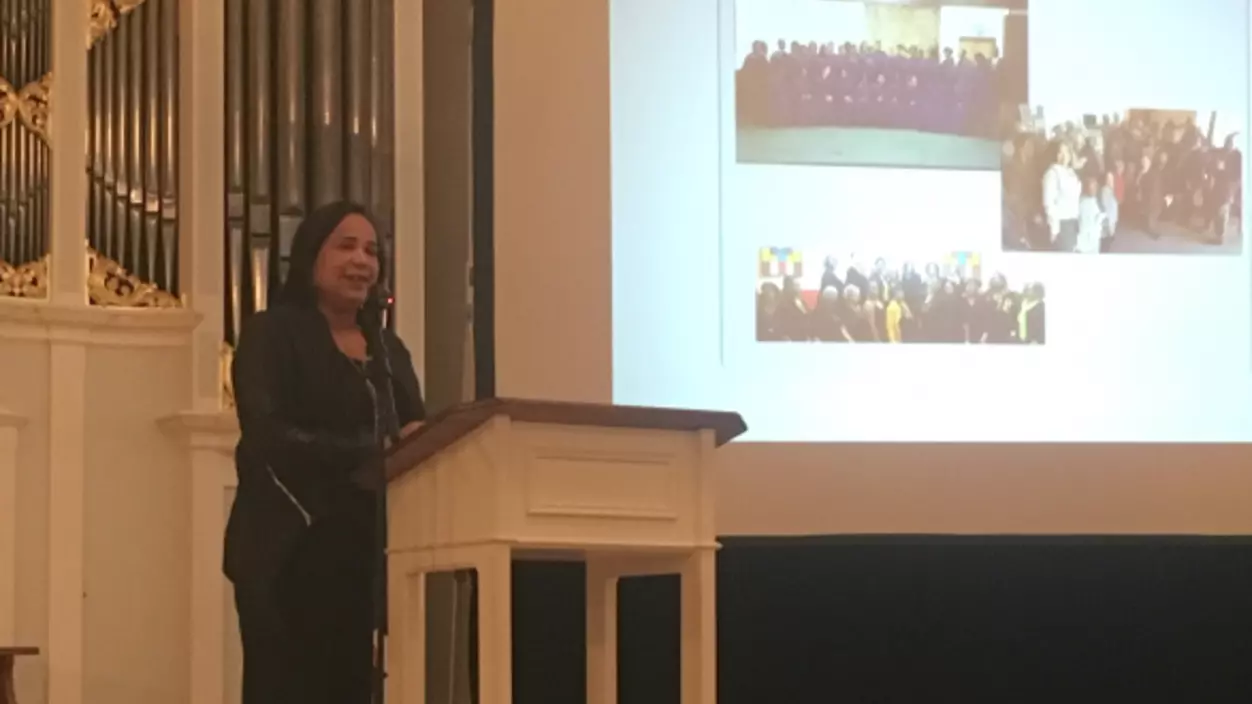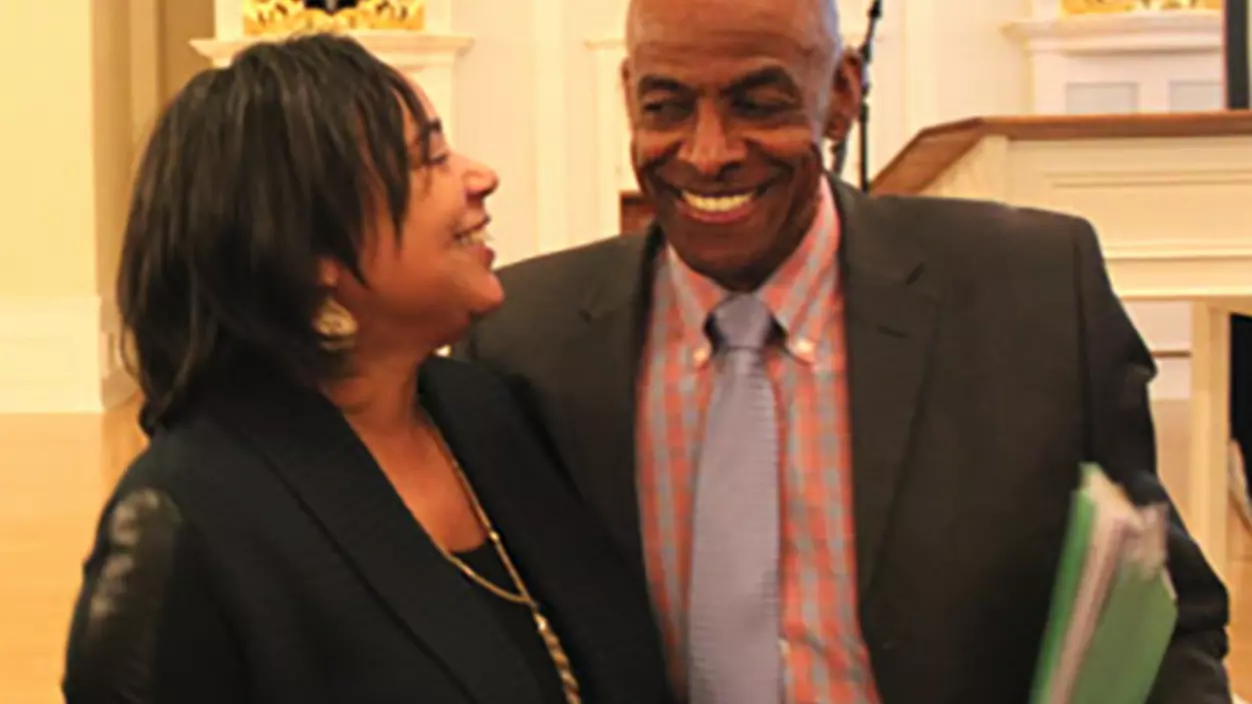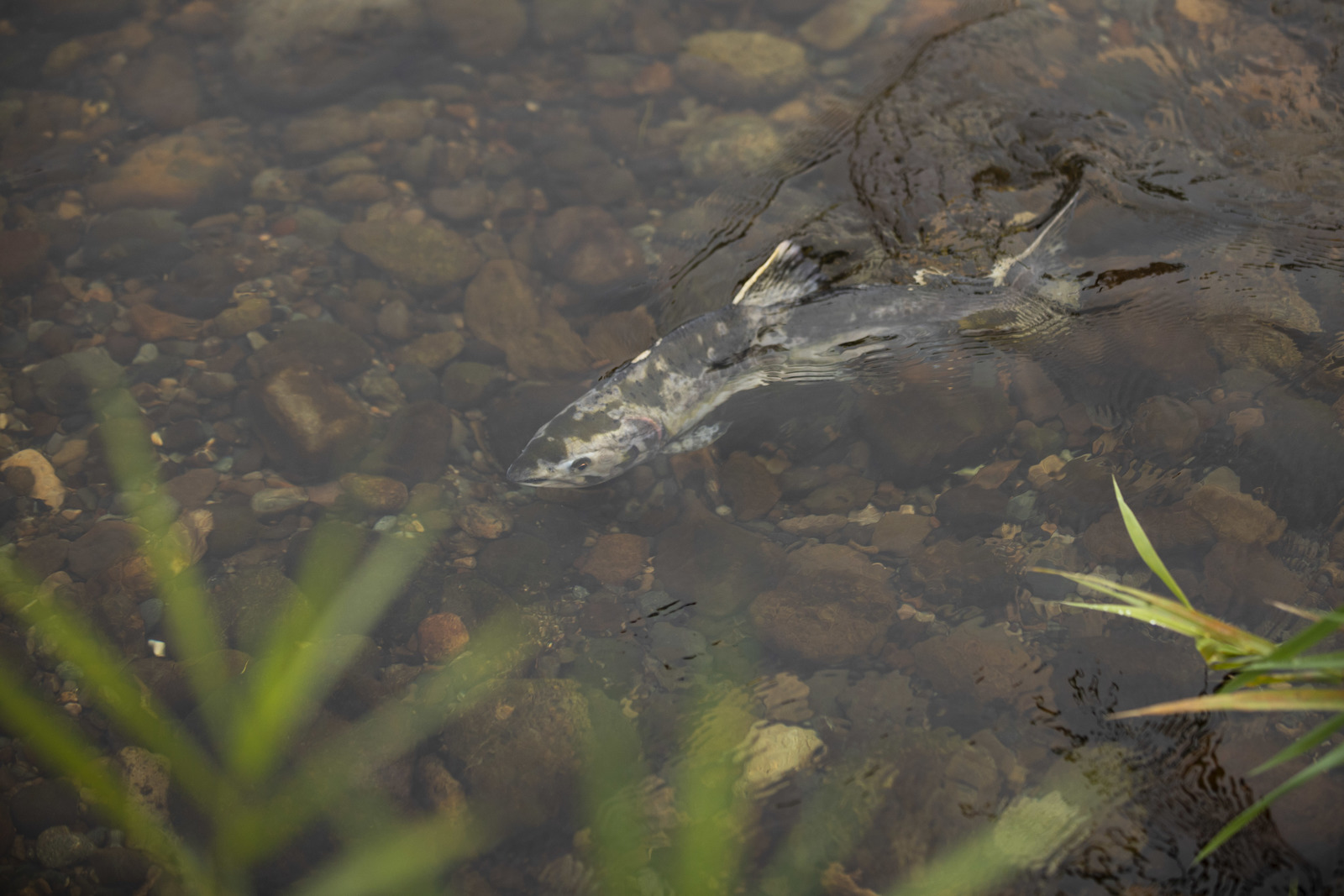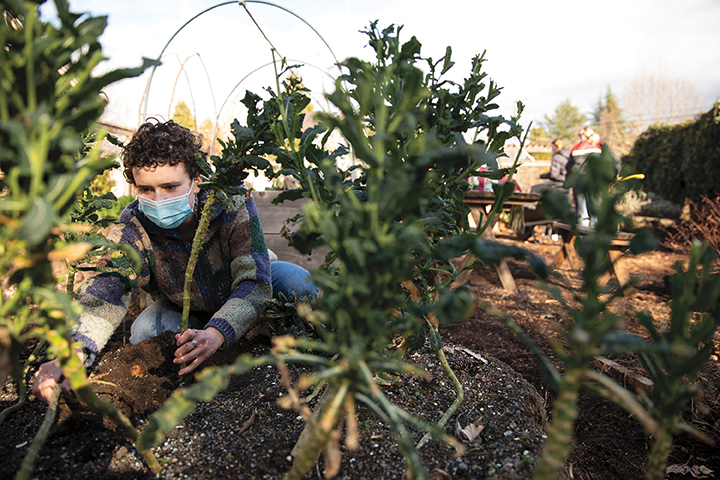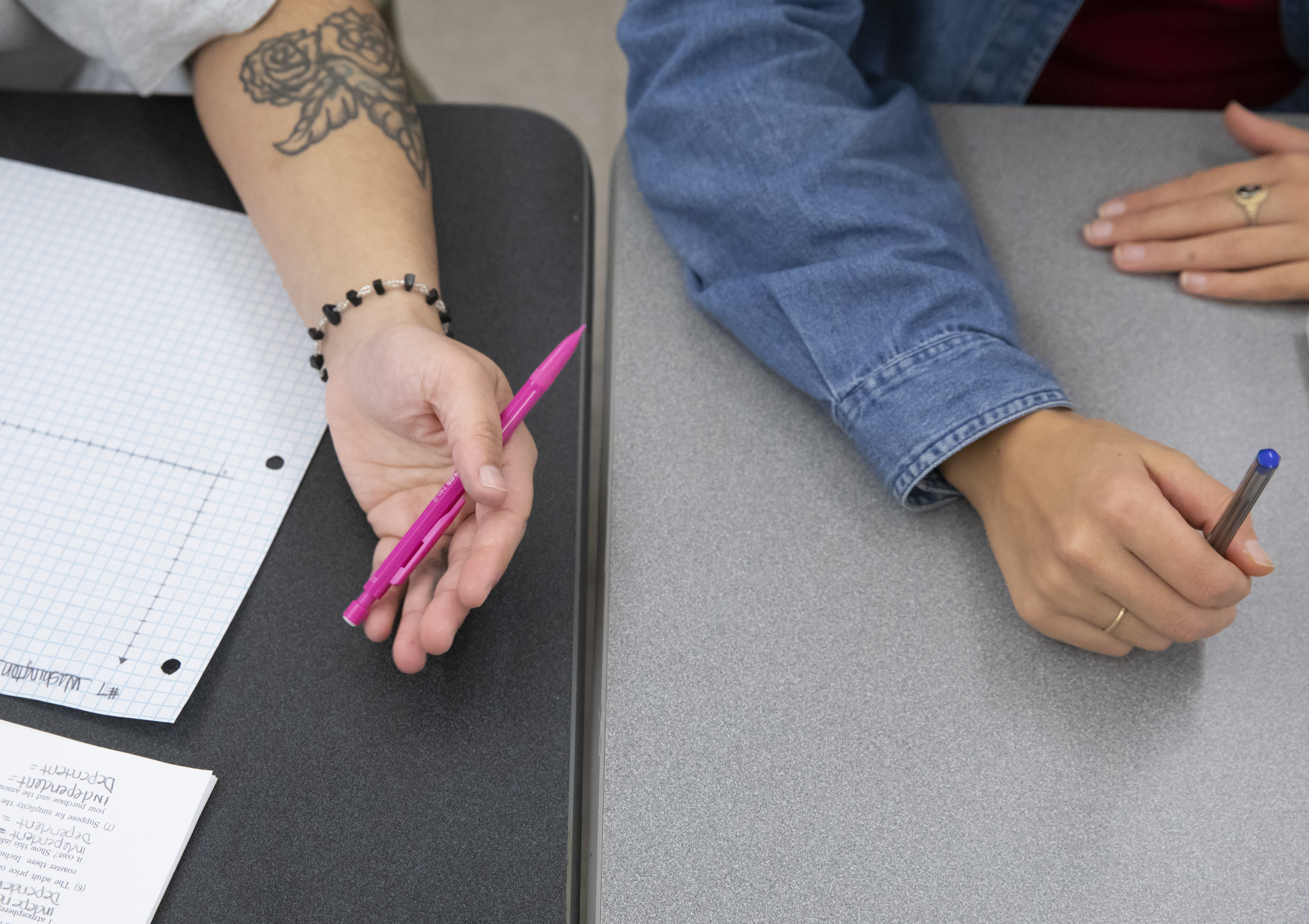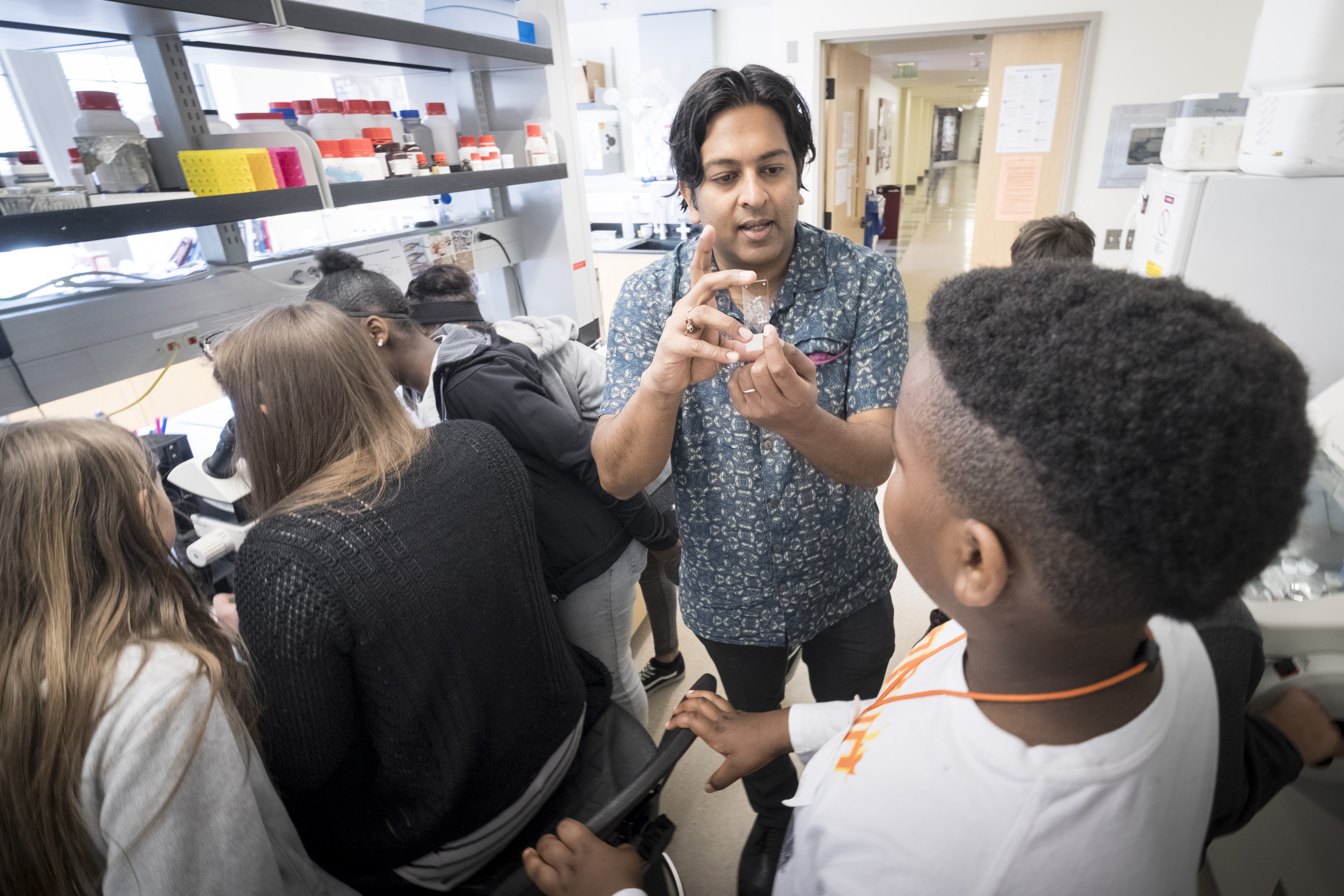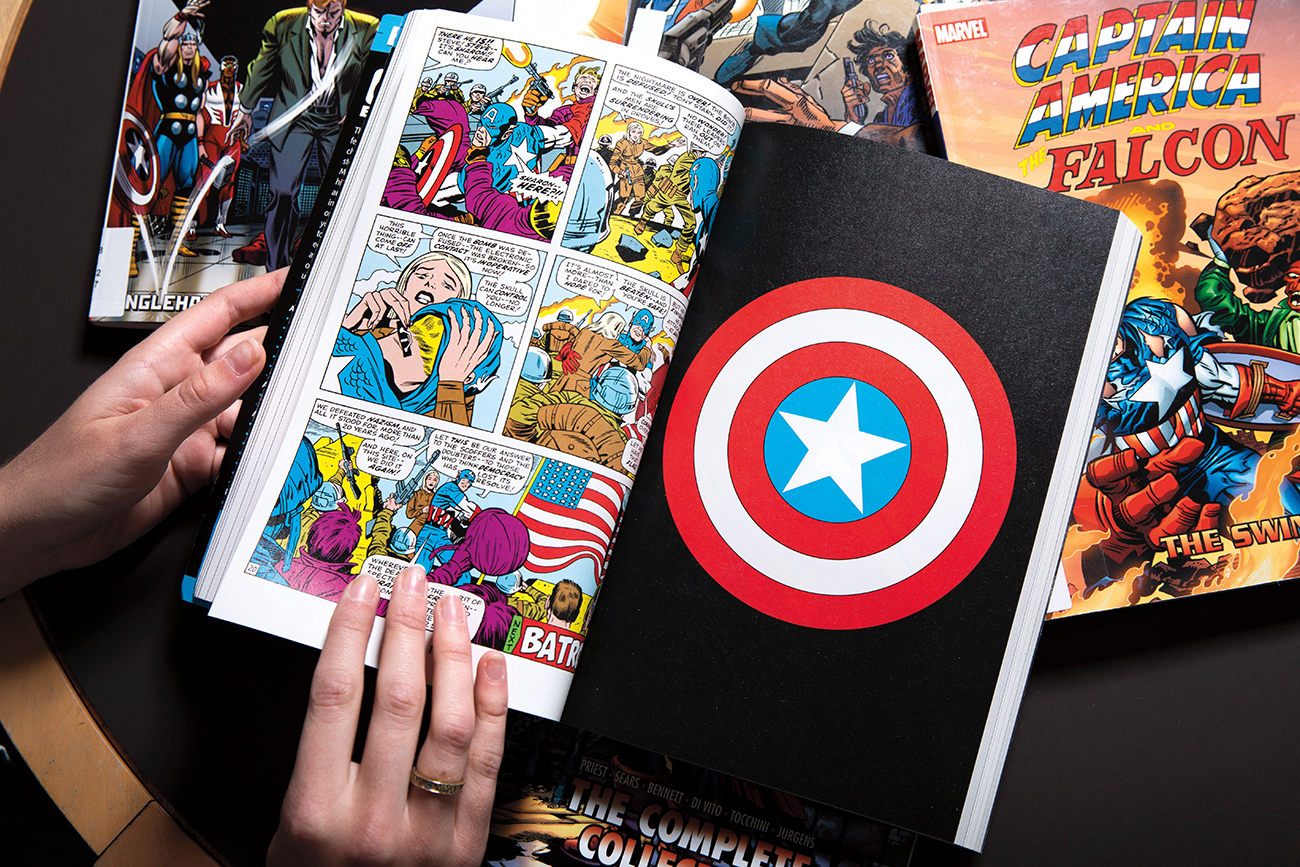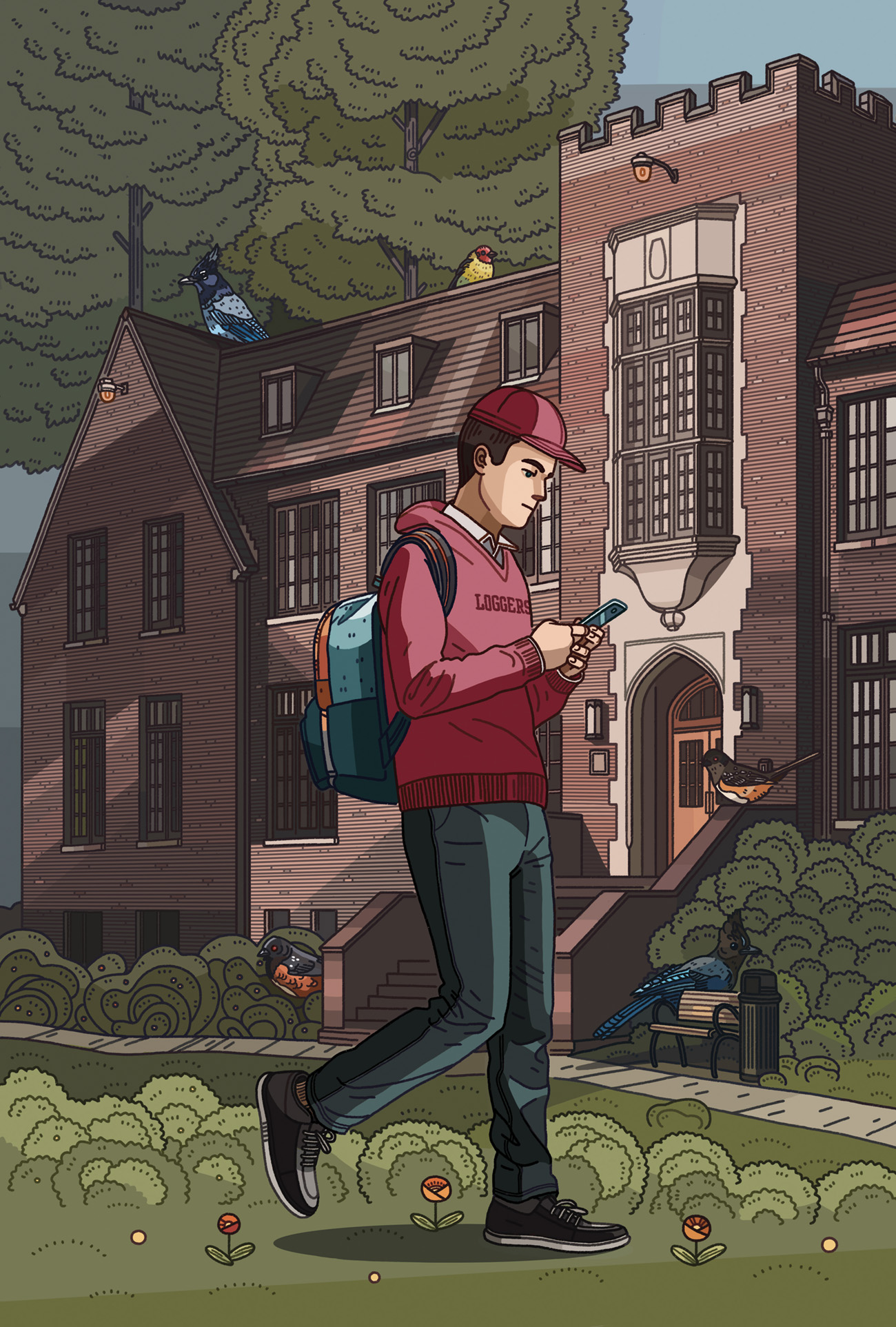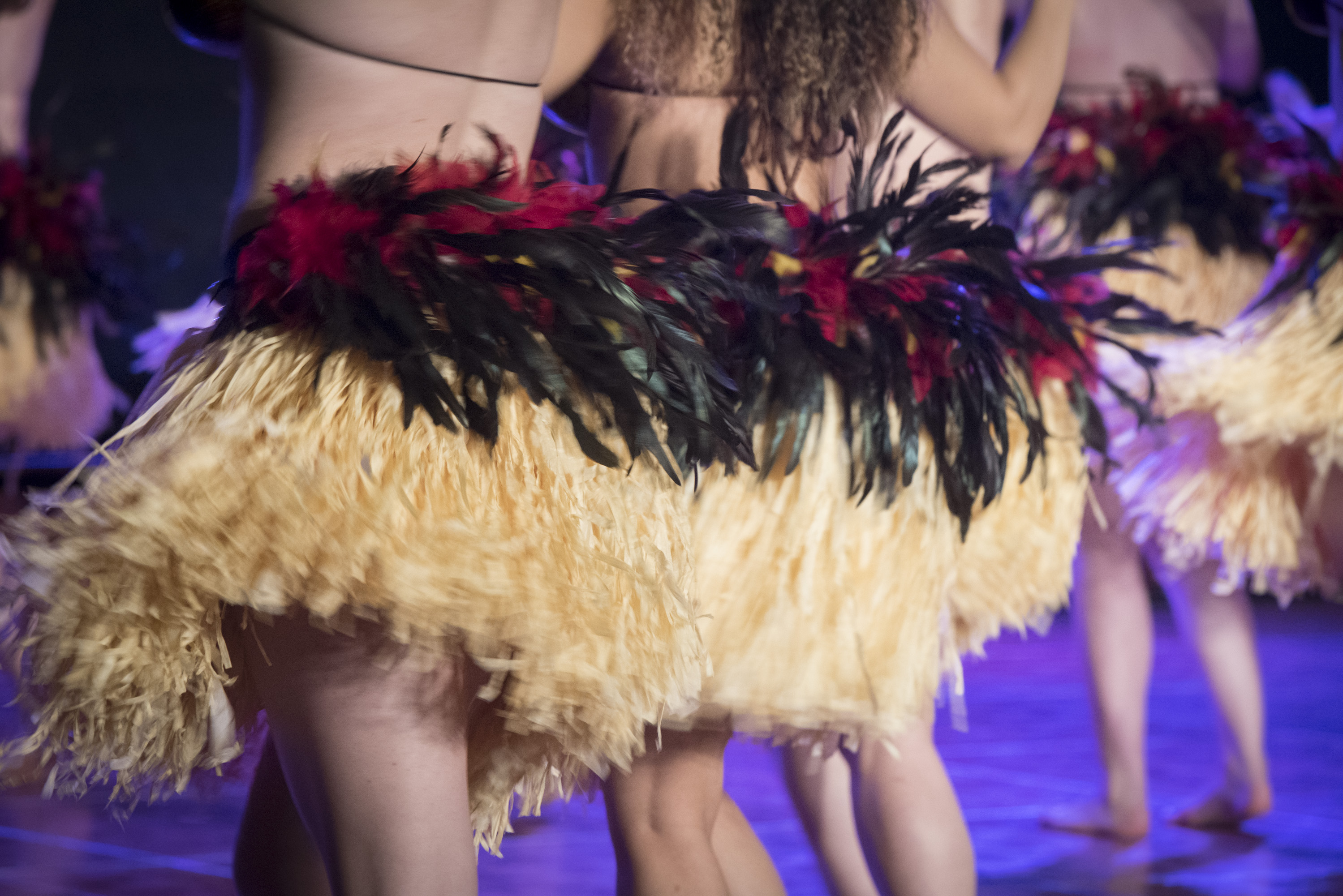On a recent cold and wet Monday evening, nearly 100 Tacoma residents shifted in the creaking pews of Puget Sound’s Kilworth Memorial Chapel as Dexter Gordon, professor of African American studies, introduced Victoria Woodards, the new mayor of Tacoma.
Dexter and Victoria have a connection that runs deep. Long before Victoria served as a Metro Parks Tacoma commissioner, Tacoma councilwoman, president of the Urban League, and the city’s mayor, she, Dexter, and a team of others had spearheaded the Tacoma Civil Rights Project. They’d spent many years working together to document and preserve stories of Tacoma’s civil rights history; the project culminated in two museum exhibits and a documentary, and served as a springboard for Puget Sound’s Race & Pedagogy Institute.

